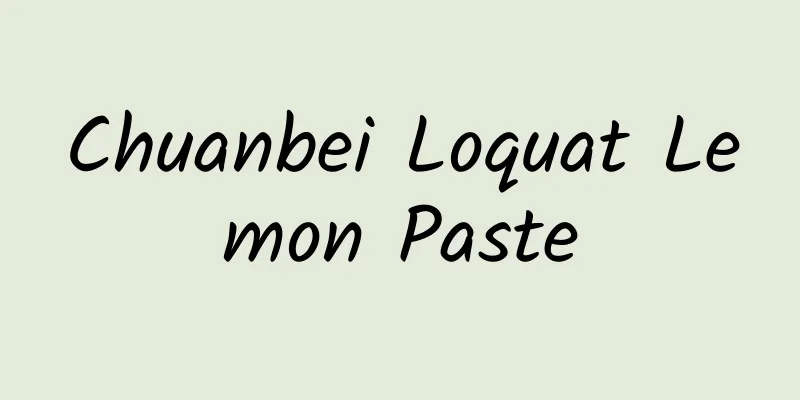Effects and functions of nard

|
Speaking of nard, I believe many friends know it because it has a good effect in treating diseases. However, some friends do not know the specific effects of nardus galangus, so let’s take a detailed look at the effects of nardus galangus here. 【English name】 RADIX ET RHIZOMA NARDOSTACHYOS [Other name] Spikenard [Source] This product is the dried roots and rhizomes of Nardostachys chinensis Batal. or Nardostachys jatamansi DC., plants of the Patrinaceae family. It is dug in spring and autumn, and the sand and impurities are removed, then dried in the sun or in the shade. [Properties] This product is slightly conical, mostly curved, and 5 to 18 cm long. The rhizome is short, with stem and leaf remnants at the top, in the form of narrow membranous sheets or fibers. The outer layer is dark brown, and the inner layer is brown or yellow. The roots are single or several are intertwined, branched or parallel, with a diameter of 0.3 to 1 cm. The surface is brown, wrinkled, and has fine roots and fibrous roots. The texture is brittle, easy to break, with a rough cross section, the bark is dark brown, often in flaky shapes, and the wood is yellowish white. It has a unique aroma, tastes bitter and spicy, and has a cooling feeling. 【Identification】 The powder of this product is dark brown. Stone cells are round or irregularly polygonal, occasionally long and narrow, single or in groups, with a diameter of 33 to 64 μm and a length of up to 200 μm or longer, with very thick walls, colorless, and a narrow cell cavity. The scalariform or reticulate vessels are 7 to 40 μm in diameter. The small scalariform vessels are bundled, and sometimes long and thin wood fibers can be seen next to them. Cork cells are mostly irregular polygons with thin dark brown walls, containing yellow to brownish yellow volatile oils. There are many fragments of basal leaf residues. The cells are rectangular or long polygonal, light yellow to brown, 20 to 31 μm in diameter, 50 to 90 μm long, and the walls are beaded and thickened. Another type of fragmentary cells is long and can be up to 200 μm long, with walls that are sometimes thickened in a rosary-like manner. 【Nature and flavor】 Spicy, sweet, warm. [entry into meridians] Enter the spleen and stomach meridians. 【Functions and indications】Regulating qi and relieving pain, relieving depression and invigorating the spleen. Used for abdominal distension, loss of appetite, vomiting; external treatment for toothache and swollen feet. 【Usage and Dosage】 3 to 6 g. For external use, use appropriate amount, rinse mouth with hot water, wash feet with decoction, or grind into powder and apply to affected area. [Storage] Store in a cool and dry place, away from moisture and insects. 【Excerpt】 Chinese Pharmacopoeia 【Source】 "Compendium of Materia Medica" Through the detailed introduction of this article, I believe everyone has a certain understanding of the role and efficacy of nard. The several functions and effects introduced in the article are relatively common. I hope everyone can remember them and they will be helpful in your life. |
<<: The efficacy and function of Momei Shifengdan
>>: The efficacy and function of comb muscle relaxing grass
Recommend
The efficacy and function of Ganoderma lucidum
When the fruit of the Chinese magnolia is ripe, i...
Stones that look like leeches after heating may sound scary, but they are actually a great help in building construction →
Yu Feng Recently, the State Council issued the &q...
What are the medicinal values of Scrophularia?
Scrophularia is a very common Chinese medicine an...
To locate seagrass, scientists are tracking green turtles because they are more reliable than satellites
Seagrass, this lush oasis on the seabed, is like ...
The latest influenza surveillance weekly report is released! Is taking oseltamivir a better way to prevent influenza?
We are now gradually entering winter, and also en...
Is it true that soft cotton is the magical "flower" that can change world history?
Magellan was determined to go around America in s...
The efficacy and function of orchid stone ginseng
Traditional Chinese medicine is a Chinese traditi...
Year-end review: Major innovative achievements in Chinese science and technology in 2021
2021 is the first year of the 14th Five-Year Plan...
Dried sandworms have so many benefits!
Dried sandworms are a common food for fishermen. ...
The effects and side effects of Lingzhi
Lingzhi is a very common medicinal material. It h...
Are humans still evolving? Four generations of mice living together give us inspiration
I always see people saying that in developed coun...
What are the differences between Cynomorium songaricum and Cistanche deserticola
Cynomorium songaricum and Cistanche deserticola a...
The call of the knot of mountains! What is the Pamir Plateau?
The westernmost point of China Snow-capped mounta...
Can you drink water right after taking cough syrup? 99% of people do it wrong!
Recently, the comment section of a video about co...









